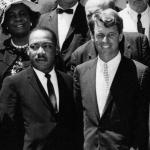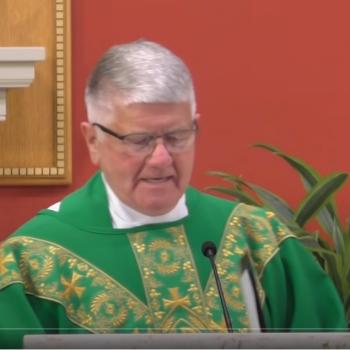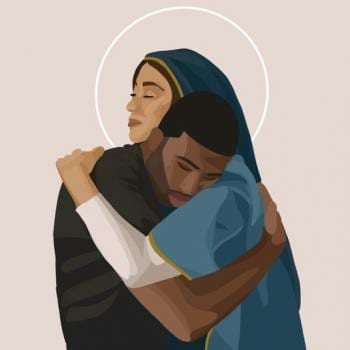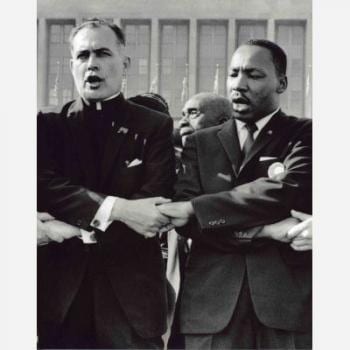Oh, Jesus, tell you once before
Babylon’s falling to rise no more
O go in peace an’ sin no more
Babylon’s falling to rise no more (Negro spiritual)
The Philosophical Empire of the West
In his 1943 address to the graduating class of Harvard College, Winston Churchill famously declared, “The empires of the future are the empires of the mind.” He was as wrong as he was right. All empires—past, present, and future—are essentially empires of the mind because they rest on the normative power of ideas: the divine mediation of pharaoh, emperor, or king; romanitas; the white man’s burden; blood and soil; the dictatorship of the proletariat; the “blessings” of liberty. Sir Edward Taylor, the father of social anthropology, wrote, “culture, or civilization, taken in its broad, ethnographic sense, is that complex whole which includes knowledge, belief, art, morals, law, custom, and any other capabilities and habits acquired by man as a member of society.” At the heart of every culture is its ‘cult,’ a set of ideas and practices, often religious or at least possessing profound religious implications, that achieves its apotheosis in the flowering of empire.
Given this, it is not at all a stretch to say that Catholics in the post-Christian West find ourselves as captives and strangers in a new empire of the mind, the Empire of Man, which is marked by incredible technological achievement and vast material wealth, but at the heart of which lies a cult that is fundamentally at odds with the Christian understanding of man. Pope Paul VI neatly defined that cultic heart in his 1971 apostolic letter marking the 80th anniversary of Pope Leo XIII’s encyclical, Rerum Novarum. “At the very root of philosophical liberalism,” the Pope wrote, “is an erroneous affirmation of the autonomy of the individual in his activity, his motivation and the exercise of his liberty.”
This identification of the Empire of Man’s faulty philosophical basis should have served as an invitation to Catholics to engage in a wholesale re-examination of their relationship to the liberal order. Yet, in what will someday be recognized as a demonstration of appalling syncretic dissonance, many Catholics burrowed deeper into the bosom of that empire at the very time the Holy Father published this and other letters, notably Humanae Vitae. In the central areas of marriage, sexual ethics, economics, and culture, Catholic imperial viziers wrote treatises, organized conferences, founded organizations and journals, introduced legislation, and captured institutions, all with the intent of defending the Empire of Man and its cultic heart against the backwardness of Catholic teaching. These viziers—on the left and right—have steadily extended the suzerainty of the Empire of Man to this day, with the result that Catholics in the United States think and behave like any other imperial subjects.
In charity, many of the deformations of character and belief that resulted from the empire’s rapid expansion since 1970 were not evident in the early years (though they were all predicted, often with stunning accuracy). But today there is no mistaking the effects of the Empire of Man’s “erroneous affirmation.” Even a cursory examination of the contemporary moral landscape authenticates the writer Christopher Ferrara’s assertion that “Liberalism is in thought (or philosophy), rationalism; in politics, secularism; in economics, greed; and in religion, indifferentism.”
In the summer of 2014, the Synod of Bishops published a working document — titled, “The Pastoral Challenges of the Family in the Context of Evangelization” — in preparation for an Extraordinary General Assembly of bishops planned for that autumn. That assembly’s task was, in part, to examine this question: Why do Catholics routinely ignore Church teaching on marriage, sexuality and family life? In the section of the working document that summarized responses to a Vatican questionnaire on this question, the following were proffered by episcopal conferences around the world as answers: “pervasive and invasive new technologies; the influence of the mass media; the hedonistic culture; relativism; materialism; individualism; the growing secularism; the prevalence of ideas that lead to an excessive, selfish liberalization of morals; the fragility of interpersonal relationships; a culture which rejects making permanent choices, because it is conditioned by uncertainty and transiency, a veritable ‘liquid society’ and one with a ‘throw away’ mentality and one seeking ‘immediate gratification’; and, finally, values reinforced by the so-called ‘culture of waste’ and a ‘culture of the moment….’”
I’m not aware of a better list of the existential waste products generated by the Empire of Man. To it we might add the worship of the state, on the left, and the nation, on the right. The Goddess of Liberty, the ‘New Colossus’ lifts her lamp beside the golden door, but in its reflected glow we see a darkness descending that was hinted at by the poet Leonard Cohen:
Things are going to slide, slide in all directions
Won’t be nothing you can measure anymore.
The blizzard of the world has crossed the threshold
And has overturned the order of the soul.
When they said REPENT REPENT
I wonder what they meant …
I’ve seen the future, baby:
It is murder.
The Perpetual Fall of the Empires of Man
Babylon—or Rome, if you prefer—is indeed falling. But then, Babylon is always falling, which is to say that there has always been a Babylon and the Christian people have always been exiles within it. I once attended a talk by Fr. Benedict Groeschel, CFR, in which he made the case that St. Augustine is the most important Christian figure for our time. It might seem strange, Fr. Benedict allowed, to talk about a Fifth Century bishop in this way, even one whose work is so central to Western civilization. But Augustine lived at a time very much like our own: the classical, pagan world he inhabited was collapsing and beyond it laid a darkness that would be broken only — and only incompletely — by the emergence of Christendom. In our time, the last echo of that imperfectly realized Christian civilization is like background radiation in the cosmos, detectable only by experts with finely tuned instruments and a passion for discovery.
Christendom’s successor, the Empire of Man, now stands at the brink of its own denouement, the result of its internal contradictions: ordered liberty collapsing into disordered license, wealth dissolving into the poverty of conscience, the exaltation of reason yielding vast ignorance, neutrality toward religion devolving into hostility toward all truth-claims, democracy perverted by corporate elites, the vision of peaceful cooperation among nations betrayed by militarism. Those who built the Empire of Man thought they could make reason alone the cornerstone of their project. They denied any telos beyond “the pursuit of happiness,” and sundered the intimate connections between tradition and community. They made “liberty” their god, but at the expense of virtue, the one thing that could sustain it. As Eliot observed,
They constantly try to escape
From the darkness outside and within
By dreaming of systems so perfect
That no one will need to be good.
But the man that is will shadow
The man that pretends to be.
The man that pretends to be now stares into an abyss, but he can’t see it. Nor can he hear the man that is whispering in his ear, calling him back to virtue, tradition and community. He has, in the words of Jeremiah, eyes that cannot see, ears that cannot hear. The Empire of Man is all he’s ever known, and the strange babbling of the Christian remnant around him merely deepens his confusion and stokes his anger. Before him, like Augustine, lies a period of chaotic darkness, made, to quote Churchill again, “more sinister, and perhaps more protracted, by the lights of perverted science.” What follows that, who can know?
Theoreticians of collapse have abounded during the past twenty-five years. Some can be easily dismissed, but others have important things to say about how civilizations decline and ultimately fall apart. They include the evolutionary biologist Jared Diamond, author of Collapse: How Societies Choose to Fail or Succeed; the systems theorist Thomas Homer-Dixon, author of The Upside of Down: Catastrophe, Creativity, and the Renewal of Civilization; and the anthropologist Joseph Tainter, author of The Collapse of Complex Societies.
Each of these thinkers identifies hyper-complexity as the prime driver of social collapse; but their work is largely confined to exploring the environmental and economic pressures that contribute to a fatal loss of social resilience. Unfortunately, none of them explores the contributions of moral hyper-complexity, especially in a society where atomized individuals, detached from tradition and community, are encouraged to define, in the words of Justice Anthony Kennedy, “one’s own concept of existence, of meaning, of the universe, and of the mystery of human life.” Such a society — indeed, such a civilization — is infinitely more complex and therefore far more susceptible to shocks than one in which there is general agreement about ethics, morality, the meaning of life, and the purposes of community. The inability of even leading social scientists to see that is further evidence that the Empire of Man is built on an “erroneous affirmation.”
What’s a Catholic To Do?
First, be a Catholic, in every sense of the word, which is a radical and even revolutionary way of life; and not just in the Empire of Man but also within the Church herself A radical Catholic will reject the syncretism of party labels, political allegiances, secular ideologies, and even attachments to nation. Our Church today is weighed down with Catholics who view the faith through the lens of the culture rather than the other way around. A radical Catholic will be a Christian first, subjecting every truth-claim, worldview and party platform to the authentic magisterial teaching of the Church. He or she will be a student of the teaching of the Church, including her social doctrine, which frustrates and confounds the contented subjects of the Empire of Man.
Second, cultivate the consciousness of a people in exile, pilgrims in an alien land. The Kingdom of God is our true home and destiny, and while we sojourn here below the Church is our country. Therefore, our communion extends beyond artificial divisions, including national borders, to encompass all the baptized, wherever they may be. That was the perspective of St. Augustine, who wrote in The City of God:
But, as the earthly city has had some philosophers whose doctrine is condemned by the divine teaching, and who, being deceived either by their own conjectures or by demons, supposed that many gods must be invited to take an interest in human affairs, and assigned to each a separate function and a separate department … and as the celestial city, on the other hand, knew that one God only was to be worshiped,and that to Him alone was due that service which the Greeks call latreia, and which can be given only to a god, it has come to pass that the two cities could not have common laws of religion, and that the heavenly city has been compelled in this matter to dissent, and to become obnoxious to those who think differently, and to stand the brunt of their anger and hatred and persecutions, except in so far as the minds of their enemies have been alarmed by the multitude of the Christians and quelled by the manifest protection of God accorded to them. This heavenly city, then, while it sojourns on earth, calls citizens out of all nations, and gathers together a society of pilgrims of all languages.
Third, practice the corporal and spiritual works of mercy with zeal: Feed the hungry, give drink the thirsty, clothe the naked, give shelter to the homeless, care for the sick, visit the imprisoned, bury the dead, admonish sinners, instruct the ignorant, counsel the doubting, give comfort to the sorrowful, bear wrongs patiently, forgive all injuries, and pray for the living and dead, including your enemies. This is a radical program for life, what Peter Maurin called “the dynamite of the Church.” This is the heart of discipleship, inspired by the Cross, fueled by the Sacraments and empowered by the Holy Spirit.
Last, be prepared for ridicule and persecution, not just from those we already offend—“liberals,” “right-wingers”—but also from everyone, on all sides. A Christian who has never been ridiculed or persecuted, especially by those he considers his friends, has good reason to wonder what’s wrong with his faith. And a Christian who constructs his life in order to avoid ridicule and persecution isn’t worthy of the name. Too many of us have become imperial subjects, happy to get along by going along. Pope Francis is calling us to something higher and far more risky. He’s asking us to recover the radical perspectives of St. Peter — who wrote “Beloved, do not be surprised that a trial by fire is occurring among you, as if something strange were happening to you. But rejoice to the extent that you share in the sufferings of Christ, so that when his glory is revealed you may also rejoice exultantly” — and St. John, in whose vision of Babylon we can see every human empire, including our own.
After this I saw another angel coming down from heaven, having great authority, and the earth became illumined by his splendor. He cried out in a mighty voice:
“Fallen, fallen is Babylon the great.
She has become a haunt for demons.
She is a cage for every unclean spirit,
a cage for every unclean bird and disgusting beast …
Then I heard another voice from heaven say:
‘Depart from her,’ my people,
so as not to take part in her sins
and receive a share in her plagues …
for her sins are piled up to the sky,
and God remembers her crimes.” (Revelation 18: 1–5)
This essay first appeared in the book: Radically Catholic in the Age of Francis: An Anthology of Visions for the Future, published by Solidarity Hall Press.












